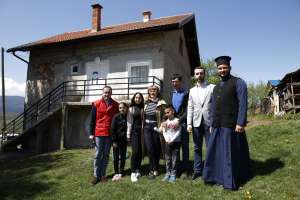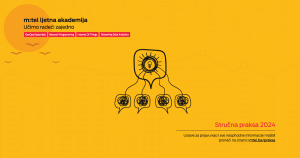SARAJEVO, March 21 (FENA) - To better protect and support people exposed to discrimination, states should put in place strong equality bodies established by constitutional or parliamentary legislation, set up as separate legal entities with a wide mandate, enjoying political, financial and operational independence, and provided with adequate resources, says the Council of Europe’s anti-racism commission in a new set of recommendations to the European governments launched today, on the International Day against Racial Discrimination.
According to the European Commission against Racism and Intolerance (ECRI), all the Council of Europe member States, except San Marino, have at least one institution that can be considered as an equality body, however, a number of them are not independent. Out of 35 European countries monitored in the latest round, eleven (*) were recommended to reinforce the independence of their equality bodies.
“Being able to work without interference from the government or political parties, and to support victims of discrimination at all stages – from receiving complaints to bringing cases to the courts and representing the victims there – are the prerequisites for an effective equality body,” said newly appointed ECRI’s Chair Jean-Paul Lehners.
“I hope all the Council of Europe states will take these recommendations on board in shaping their legislation and practices.”
The new General Policy Recommendation defines two key functions for the equality bodies: to promote equality and prevent discrimination, in particular by conducting inquiries, pursuing research, raising awareness, supporting good practice, making recommendations and contributing to legislation and policy formation; to support those exposed to discrimination and pursue litigation on their behalf.
“People exposed to discrimination and intolerance often have neither the capacity nor the resources to enforce their rights. These persons often need, as a first step, personal and emotional support; and, at the next level, legal advice and assistance. Equality bodies, therefore, have an important role in helping them to restore their rights. A vital aspect here is to ensure that these bodies are accessible to people not only in capitals, but also in the regions, where they can be exposed to even stronger prejudice, discrimination and intolerance,” underlined Jean-Paul Lehners.
(FENA) S. R.











